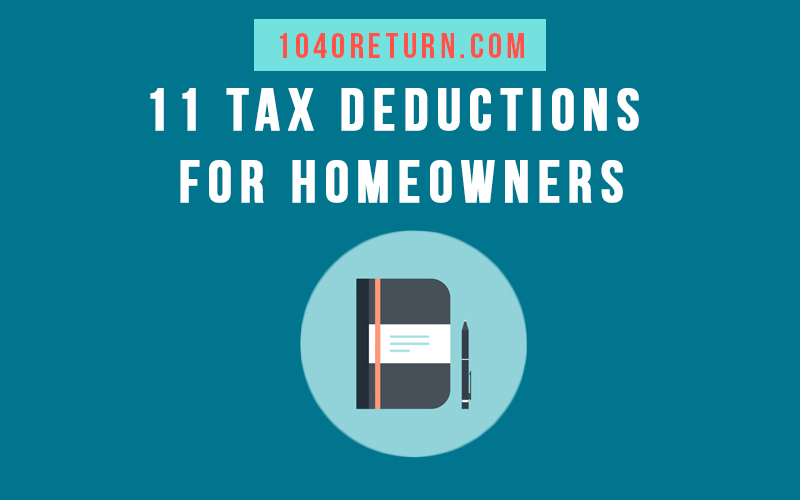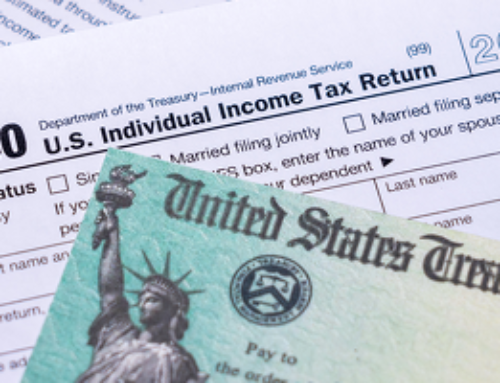“There are certain deductions that can be claimed by homeowners only,” says John Gregory EA, tax practitioner and founder of 1040Return.com. “If you have taken out a homeowner’s loan, consider these deductions as Uncle Sam’s gift to you. These tax breaks will surely alleviate the financial burden of many taxpayers, especially those who are paying their mortgage.”
Now let us take a look at the most significant tax breaks that only homeowners can claim:
Points on Home Mortgage and Refinancing. If you have bought a home in 2014 by availing mortgage, then apart from the mortgage interest, you can also write off the points on your tax return. Simply put, ‘points’ are the fees you pay to the lender for getting the loan. One point is equal to one percent of the principal loan amount. The fee varies from one point to three points depending on the trend prevalent in the area. Full deduction can be claimed for the points, provided they pertain to the purchase of the home.
Interest on Home Improvement Loan. Interest on home improvement loan is fully deductible if the improvement is made in the main home and it enhances its sale value.
Energy Efficiency Tax Credit. This is a tax credit the IRS offers you for making your home energy-efficient by installing equipment that will conserve energy while heating or cooling your home. Qualified storm doors, energy efficient windows, insulation, air-conditioning and heating system, etc are the things that can help save energy and earn you tax credits at the same time. The lifetime limit of the home energy credit is $500, out of which only $200 can be used for the windows. This credit is set to expire on December 31, 2016.
Renewable Energy Tax Credit. The Renewable Energy Efficiency Property Credit refers to the tax credit that you get on installing the equipment that uses renewable sources of energy, such as the sun, wind, and geothermal energy. You are eligible to gain this tax credit to the extent of 30 percent of the cost of the following equipment, installation included.
-Qualified fuel cell property
-Qualified solar electric systems
-Qualified solar water heaters
-Qualified small wind energy property
-Qualified geothermal heat pumps.
The dollar limit on the amount of credit for fuel cell property is $500 per half-kilowatt of power capacity of the property. For example, the fuel cell has a capacity of 10kW. It will qualify for $10,000 in tax credit. Besides, the amounts of credit for solar, wind and geothermal equipment do not have any upper limit. The credit is available for equipment placed in service through Dec. 31, 2016.
Property Tax. The taxes paid to acquire the property are fully deductible from the taxable income and the same is reflected in the Form 1040. Transfer tax arising from the transfer of the property to the new owner is a very common item.
Redeemable Ground Rents. The redeemable grounds rents can be deducted if you have been paying monthly or annual rentals.
Interest Accrued on a Reverse Mortgage. The reverse mortgages considered as a loan advance and not an income. Hence, the amount you receive is not taxable. Any interest, including the original issue discount, accrued on a reverse mortgage is not deductible until the loan is paid off.
Premium Mortgage Insurance. You may be eligible to claim the deduction for the Premium Mortgage Insurance (PMI) on your tax return. However, this deduction is set to expire with the tax year 2014.
Records of your Home Expenses and Improvements
– The taxpayers should certainly keep a track of the real estate taxes that they pay for their property. They should maintain good records by preserving the copy of the taxes paid.
– The bank which financed your property will send you the Form 1098. It is a statement showing the amount of interest that you paid on your mortgage. The 1098 has to be mailed by 31stJanuary of the following year.
– If you make improvements to your property, you cannot write off the cost of home improvement. However, when you wish to sell off your home, the cost is supposed to be added to the purchase price of your property. The aim is to diminish the gain when you sell your home.
– Don’t forget to retain the receipts every time you make an improvement to your property. It would be very easy to maintain and retrieve the receipts if you store them in a dedicated file folder.
Tax Breaks that may be expiring, plus tax breaks that may be extended
– I don’t expect the introduction of any new tax breaks next year. However, the Home Energy Credit and the Premium Mortgage Insurance expires with the tax year 2014 unless the Congress extends those credits.
– However, I do think there is substantial pressure from the ‘Green Energy Companies’ to extend the energy credits applicable to geothermal heat pump properties, small wind properties, solar and combined heat and power properties, which is set to expire on 31st December 2016.
Tax Tips on selling and buying a home
– If and when you sell off your property, do retain a copy of the settlement agreement of when you had bought the home. If you do not buy a new home and decide to keep the cash, any gain that you might have made from the sale would be subject to tax, unless it does not exceed $250,000 for an individual and $500,000 for a married couple filing jointly.
– The first-time home buyers would be glad to know that they can withdraw $10,000 from their IRA account to buy a home, without being charged any penalties.
“Buying a home can be a stressful ordeal,” says Gregory. “However, if you properly deal with the taxes and take advantage of the deductions available, it can relieve some of your stress and leave you to enjoy the experience hassle-free.”
1040Return.com provides tax software resources, information, tools, and more. It has been designed to help the self-employed and small business owner. They have also conducted research to calculate the average net profit for all 318 industries, based off of average gross sales. This free information helps small business owners maintain accurate records and provides an idea of IRS expectations. They also provide audit protection insurance that helps if there is ever an audit. For more information on 1040Return.com visit the site at: www.1040Return.com.






